-
Product Name
UBE3A antibody
- Documents
-
Description
UBE3A Rabbit Polyclonal antibody. Positive IP detected in mouse brain tissue. Positive WB detected in mouse brain tissue, Jurkat cells, K-562 cells, mouse lung tissue. Positive IHC detected in human kidney tissue, human lung tissue, mouse kidney tissue. Positive IF detected in Hela cells. Observed molecular weight by Western-blot: 100kd
-
Tested applications
ELISA, WB, IHC, IF, IP
-
Species reactivity
Human,Mouse,Rat; other species not tested.
-
Alternative names
ANCR antibody; E6 AP antibody; E6AP antibody; E6AP ubiquitin protein ligase antibody; EPVE6AP antibody; FLJ26981 antibody; HPVE6A antibody; UBE3A antibody; ubiquitin protein ligase E3A antibody
- Immunogen
-
Isotype
Rabbit IgG
-
Preparation
This antibody was obtained by immunization of UBE3A recombinant protein (Accession Number: XM_047433011). Purification method: Antigen affinity purified.
-
Clonality
Polyclonal
-
Formulation
PBS with 0.02% sodium azide and 50% glycerol pH 7.3.
-
Storage instructions
Store at -20℃. DO NOT ALIQUOT
-
Applications
Recommended Dilution:
WB: 1:500-1:5000
IP: 1:200-1:1000
IHC: 1:20-1:200
IF: 1:10-1:100
-
Validations
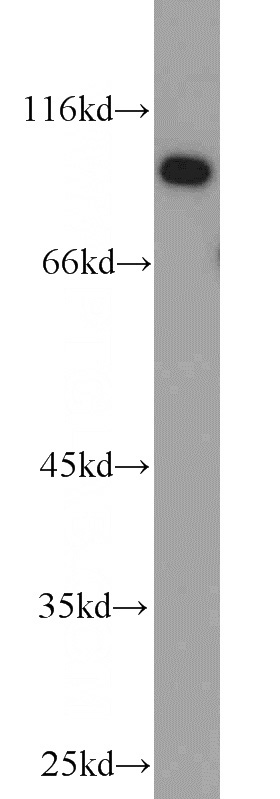
mouse brain tissue were subjected to SDS PAGE followed by western blot with Catalog No:116541(UBE3A antibody) at dilution of 1:1000
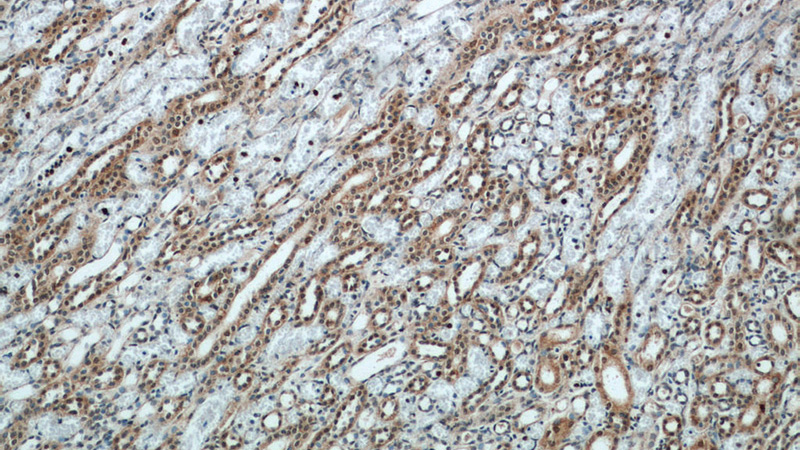
Immunohistochemical of paraffin-embedded human kidney using Catalog No:116541(UBE3A antibody) at dilution of 1:50 (under 10x lens)
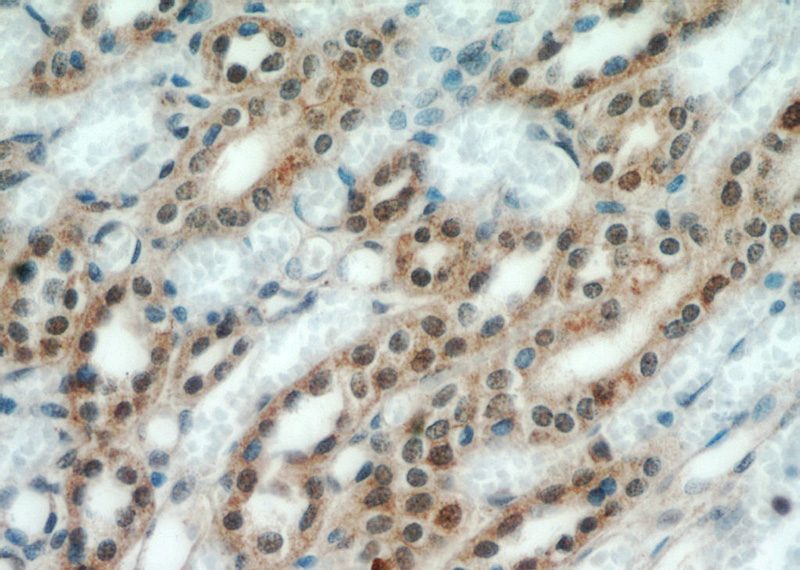
Immunohistochemical of paraffin-embedded human kidney using Catalog No:116541(UBE3A antibody) at dilution of 1:50 (under 40x lens)
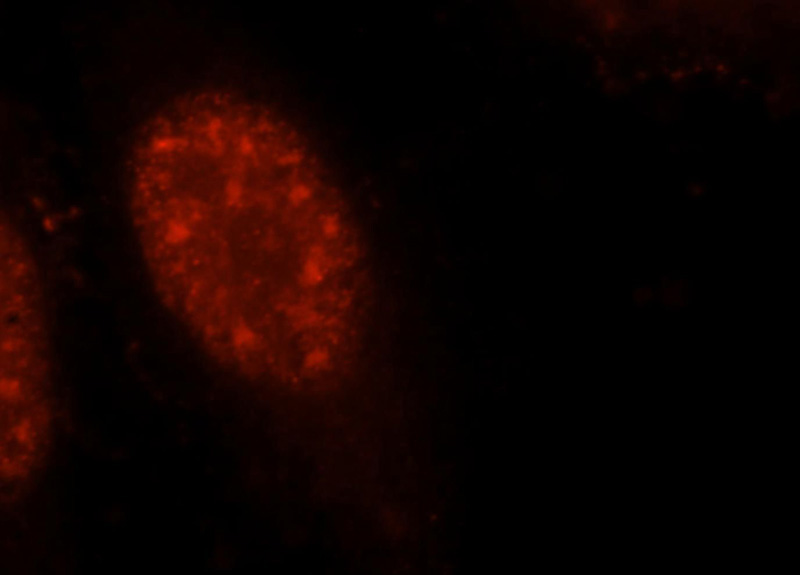
Immunofluorescent analysis of Hela cells, using UBE3A antibody Catalog No:116541 at 1:25 dilution and Rhodamine-labeled goat anti-rabbit IgG (red).
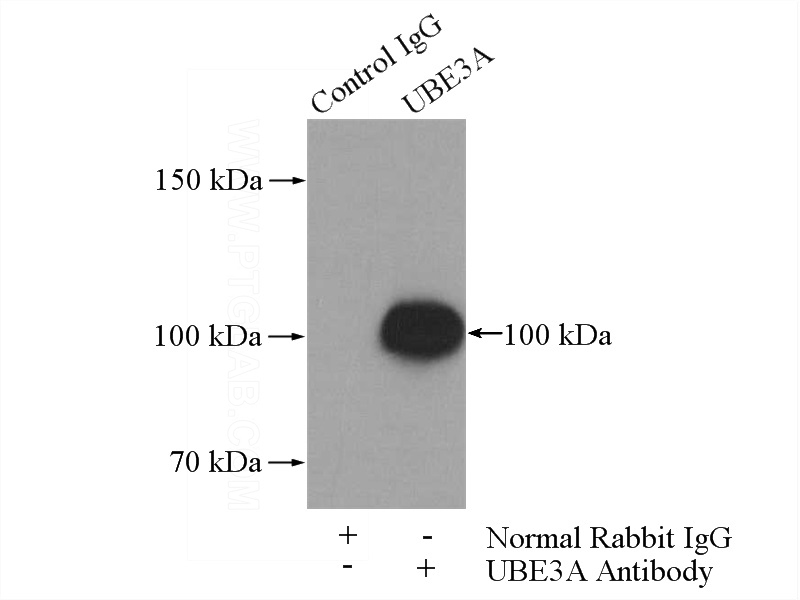
IP Result of anti-UBE3A (IP:Catalog No:116541, 4ug; Detection:Catalog No:116541 1:300) with mouse brain tissue lysate 4000ug.
-
Background
UBE3A(Ubiquitin-protein ligase E3A) is also named as E6AP, EPVE6AP, HPVE6A and belongs to the E3 ubiquitin protein ligase family. It functions as both an E3 ligase in the ubiquitin proteasome pathway and as a transcriptional coactivator. It is also initially identified as a cellular protein that mediates in vitro association of the human papillomavirus E6 protein with p53, leading to the ubiquitin-dependent degradation of p53(PMID:1661671). Defects in UBE3A are a cause of Angelman syndrome (AS)(PMID:10508479). It has 3 isoforms produced by alternative splicing.
Related Products / Services
Please note: All products are "FOR RESEARCH USE ONLY AND ARE NOT INTENDED FOR DIAGNOSTIC OR THERAPEUTIC USE"
